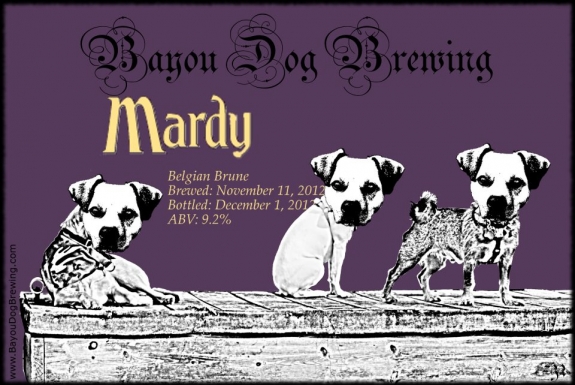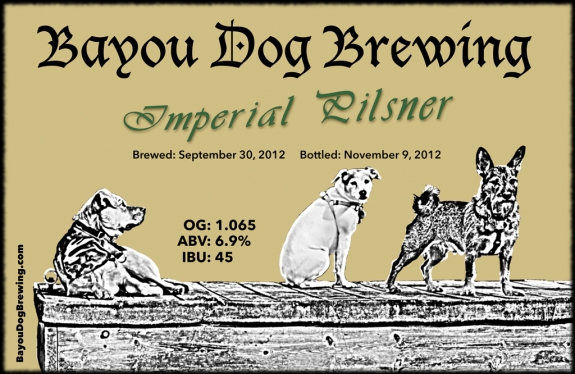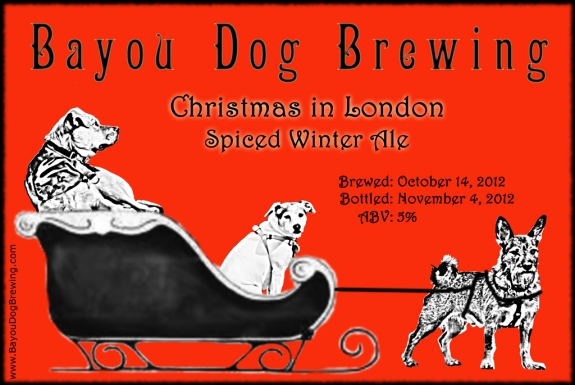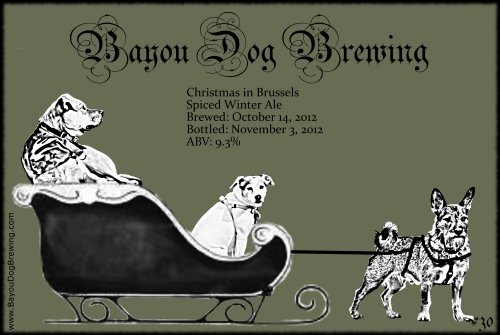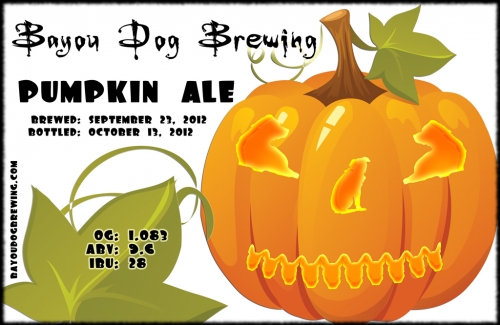Style: Pumpkin Ale
Brewed: September 23, 2012
Bottled: October 13, 2012
OG: 1.083 FG: 1.010
IBUs: 28 ABV: 9.6%
Grains
10 lbs Rahr Pale Malt
2 lbs Flaked Oats
0.5 lb Biscuit Malt
0.5 lb Caramel Malt 60L
Hops
60 min: 1 oz East Kent Goldings (5.6% AA)
30 min: 1 oz East Kent Goldings (5.6% AA)
Additions
4 lb Roasted Pie Pumpkin
10 oz Dark Brown Sugar
2 tsp Ground Cinnamon
1 tsp Ground Ginger
0.5 tsp Ground Cloves
0.5 tsp Ground Nutmeg
0.25 tsp Ground Allspice
Yeast
2 liter starter of American Ale (Wyeast #1056)
This pumpkin ale should be ready in time for Thanksgiving, and be a perfect compliment to a slice of pumpkin pie. Both the residual sugar and spice level were lower than I had anticipated, but it certainly tastes like pumpkin!
A few additional things to remember when doing a pumpkin pie beer again:
- Roast the pumpkin a day early…the roasting itself is a very long process, that will only add to your brew day.
- Use a bunch of rice hulls to help with the sparge, probably around a pound.
- Give yourself a lot more time on the sparge than you’re used to. The sparge on this brew was around 3 hours. Never stuck, but never flowing the way I wished it was.
- The pumpkin will introduce more fermentable sugars. The 4 pounds of roasted pumpkin that I added increased the gravity quite a bit, around 20 points! I’ll probably need to do some more research on the subject, see if someone has a good calculation. Although the next pumpkin brew will be a barley wine, so I’m certainly in no rush to lower the ABV.
- Add more spices, or maybe add a second round of spicing to the fermented beer as a “tea”.
- A bit more caramel malt would be good, to increase the sweetness…or mash a bit higher in temp. Then again, my 3 hr sparge may have had something to do with how fermentable the wort had become.
